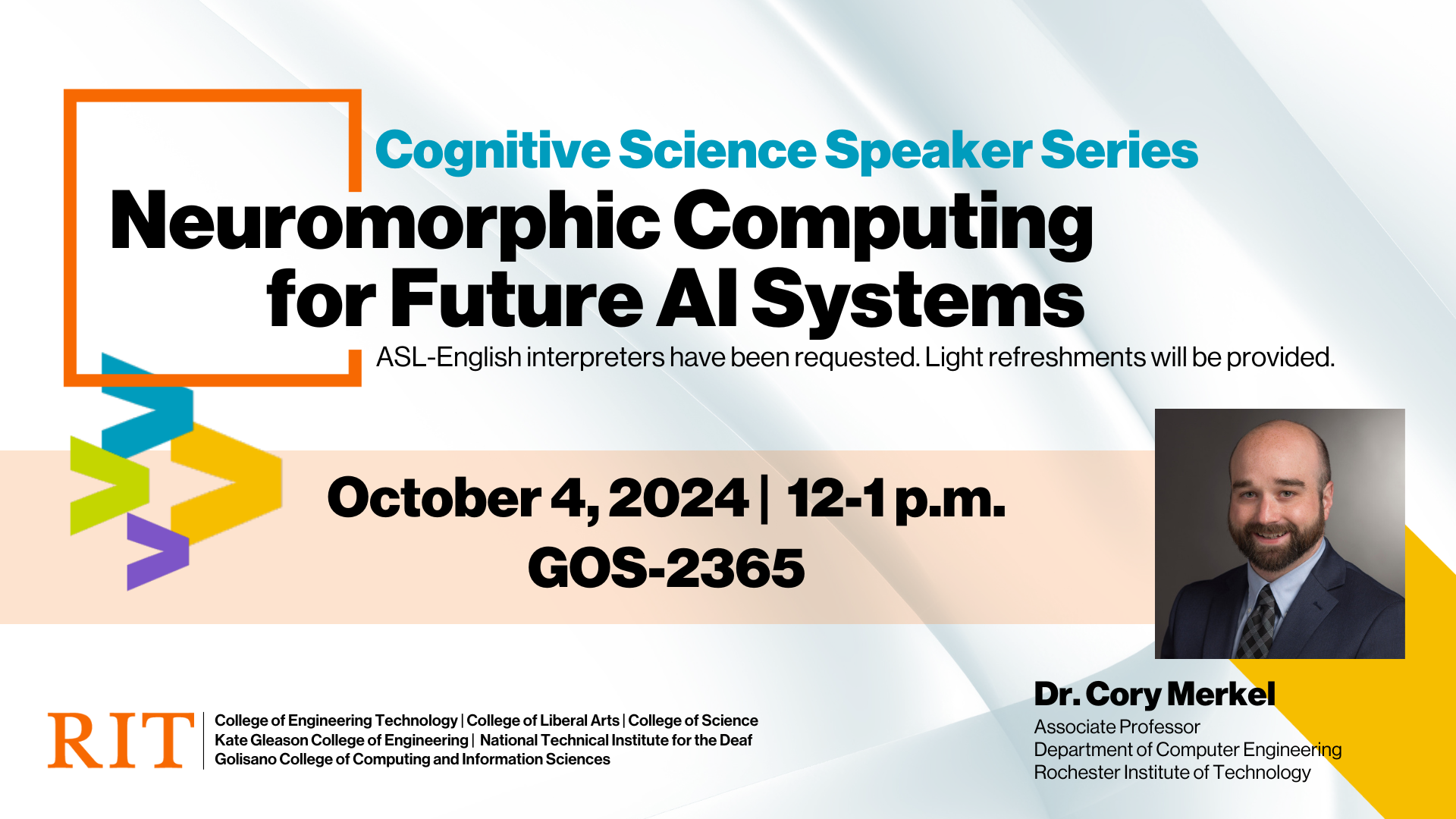Cog Sci Speaker Series: Neuromorphic Computing for Future AI Systems

Presenter: Dr. Cory Merkel
Title: Neuromorphic Computing for Future AI Systems
Abstract: Artificial intelligence (AI) has become the linchpin in a growing number of products, services, and research programs which are aimed at automating and enhancing the human decision-making process. There is no doubt that AI will play a central role in the future of healthcare, transportation, manufacturing, and defense, among others. However, the rapidly growing size, weight, and power (SWaP) cost of AI algorithms limits their deployment on devices with practical computing and energy constraints (satellites, wearables, wireless sensors). In this talk, I will discuss our lab’s efforts to bridge this gap by closely emulating the structure and function of biological brains, with the ultimate goal of enabling AI in the most SWaP-constrained environments. This research takes a holistic approach, examining the entire AI stack, from devices and circuits to algorithms and applications. At the lowest level, I will present our research on memristor-based circuits for implementing weighted communication pathways in artificial neural networks (ANNs) and spiking neural networks (SNNs). Memristors reduce the power and latency associated with running ANNs/SNNs on traditional computer architectures by directly emulating both the memory and computation of biological synapses. In addition, memristor plasticity enables on-chip learning and allows ANNs/SNNs to function in the presence of hardware defects and process variations. Moving up the design hierarchy, the talk will highlight ideas for biologically-inspired energy management in neuromorphic systems and efficient ANN/SNN topologies. Finally, the talk will provide an overview of our research related to the trustworthiness and potential security vulnerabilities of AI hardware with ties to human perception and psychology.
Bio: Cory Merkel is an associate professor with the Department of Computer Engineering, Rochester Institute of Technology. He earned his BS and MS degrees in computer engineering (2011) and a Ph.D. in microsystems engineering (2015) from RIT. From 2016 to 2018, Dr. Merkel was a research electronics engineer with the Information Directorate, Air Force Research Lab. He is currently the director of the Brain Lab, a multidisciplinary research lab aimed at fundamental research to enable the next generation of ultra-efficient and trustworthy AI systems. His current research focuses on mapping of AI algorithms, primarily artificial and spiking neural networks, to mixed-signal hardware, design of brain-inspired computing systems using emerging technologies, and trustworthy AI hardware. Dr. Merkel’s research has been published in a number of peer-reviewed conferences, journals, and books.
Event Snapshot
When and Where
Who
Open to the Public
| Cost | FREE |
Interpreter Requested?
Yes









